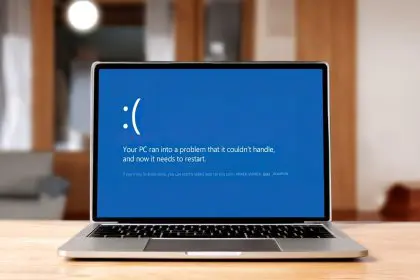The next time you scroll through your social media feed or ask your virtual assistant a question, consider this, less than 1% of Silicon Valley’s leadership roles are held by Latina women, and the numbers are even lower for Black women. This startling statistic reveals a troubling truth about who’s creating the technology that increasingly controls our daily lives. In an industry that prides itself on innovation and forward thinking, the persistent lack of diversity continues to cast a long shadow over its achievements.
The tech industry’s homogeneity isn’t just a pipeline problem it’s a systemic issue that affects everything from product development to company culture. Recent studies have shown that diverse teams are 87% better at making decisions and 35% more likely to outperform their competitors, yet tech giants continue to struggle with meaningful inclusion.
When AI gets it wrong
Consider the controversial case of Liv, an AI chatbot meant to represent a Black, queer woman. Created by an all-white male team, this digital persona quickly became a masterclass in what goes wrong when tech lacks diverse perspectives. Instead of breaking stereotypes, Liv reinforced harmful tropes that have plagued Black women for generations, including the outdated “Mammy” characterization that should have stayed in the past.
The Liv incident isn’t an isolated case. Similar problems have emerged across various AI applications, from facial recognition systems that struggle to identify people of color to language processing algorithms that perpetuate gender bias. These failures stem from a fundamental lack of diversity in the teams creating these technologies, resulting in blind spots that can have far-reaching consequences.
The real-world consequences of biased technology
Recent investigations by The Washington Post have uncovered disturbing examples of AI gone wrong, particularly affecting Black communities. With 72% of organizations now embracing AI according to McKinsey’s latest research, these biases aren’t just theoretical problems they’re actively shaping hiring decisions, healthcare access, and countless other aspects of our lives.
The impact extends far beyond individual experiences. Biased algorithms have been found to affect loan approvals, criminal justice risk assessments, and even medical treatment recommendations. A study by the National Institute of Health revealed that AI systems used in healthcare consistently showed bias against minority patients, leading to potentially life-threatening disparities in treatment recommendations.
Why representation in tech truly matters
When technology is developed without diverse perspectives, it often fails the very communities it claims to serve. Take healthcare algorithms, for instance. These systems, designed with limited demographic data, have been found to prioritize certain populations while disadvantaging others, creating a dangerous cycle of discrimination that becomes harder to break with each passing day.
The absence of diverse voices in tech development doesn’t just affect product functionality it influences the very problems teams choose to solve. Research shows that diverse teams are more likely to identify and address issues affecting underserved communities, leading to more inclusive and effective solutions.
Success stories that prove diversity works
But there’s hope. In rural Malawi, the Ulangizi chatbot exemplifies what happens when technology is created with cultural awareness at its core. By providing agricultural advice in Chichewa, the local language, this AI tool has transformed farming practices and improved livelihoods. This success story demonstrates how inclusive technology can create meaningful change when developed by and for the communities it serves.
Another inspiring example comes from a team of Black female developers who created an AI-powered hair care app that accurately recognizes and provides recommendations for diverse hair types, addressing a gap that mainstream beauty tech had overlooked for years. Their success proves that diverse teams naturally identify and solve problems that homogeneous groups might never even recognize.
The path forward
Creating equitable technology isn’t just about hiring practices it’s about fundamentally changing how we approach tech development. Companies need to move beyond surface-level diversity initiatives and ensure marginalized voices are present at every stage of development. Investors must critically examine whether their funding decisions perpetuate or disrupt systemic inequalities.
Educational institutions also play a crucial role in this transformation. Programs that introduce coding and tech skills to underrepresented communities at an early age are essential for building a more diverse pipeline of future tech leaders. Organizations like Black Girls Code and Code.org are leading the way, but more support is needed to scale these efforts.
What you can do right now
As users of technology, we hold more power than we realize. By demanding transparency from tech companies, supporting organizations that prioritize diverse development teams, and staying informed about how our favorite apps and services are created, we can influence the future of technology. The digital world we’re building should reflect the richness and diversity of the real one.
Consumers can make conscious choices about which technologies they use and support companies that demonstrate genuine commitment to diversity in their development teams. This includes researching a company’s diversity statistics, reading their annual inclusion reports, and supporting startups founded by underrepresented entrepreneurs.
The future of inclusive tech
The stakes have never been higher. As artificial intelligence and automation become increasingly integrated into our lives, the need for diverse perspectives in tech development becomes more crucial. The future of technology isn’t just about code it’s about ensuring that the people writing that code understand and represent the communities they’re building for.
Whether you’re a tech enthusiast, a concerned citizen, or someone who simply uses technology in your daily life, your voice matters in this conversation. The future of tech belongs to all of us, and it’s time we ensured it was built by all of us too. By supporting initiatives that promote diversity in tech, mentoring underrepresented individuals, and holding companies accountable for their diversity commitments, we can help create a more equitable and innovative tech industry for everyone.
The path to truly inclusive technology isn’t easy, but it’s essential. As we continue to rely more heavily on digital solutions in our daily lives, the importance of having diverse voices in their development only grows. The technology we create today will shape the world of tomorrow, and that world should be designed with everyone in mind.
















